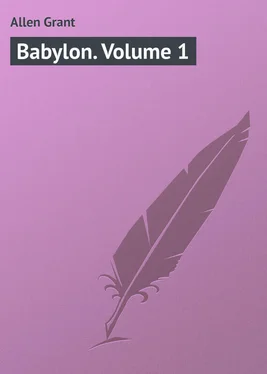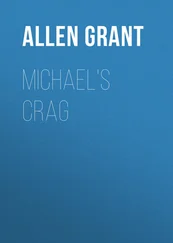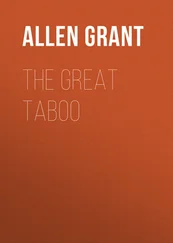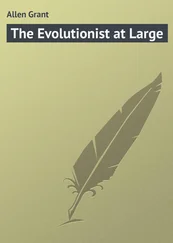Grant Allen - Babylon. Volume 1
Здесь есть возможность читать онлайн «Grant Allen - Babylon. Volume 1» — ознакомительный отрывок электронной книги совершенно бесплатно, а после прочтения отрывка купить полную версию. В некоторых случаях можно слушать аудио, скачать через торрент в формате fb2 и присутствует краткое содержание. ISBN: , Жанр: foreign_prose, на английском языке. Описание произведения, (предисловие) а так же отзывы посетителей доступны на портале библиотеки ЛибКат.
- Название:Babylon. Volume 1
- Автор:
- Жанр:
- Год:неизвестен
- ISBN:http://www.gutenberg.org/ebooks/47431
- Рейтинг книги:5 / 5. Голосов: 1
-
Избранное:Добавить в избранное
- Отзывы:
-
Ваша оценка:
- 100
- 1
- 2
- 3
- 4
- 5
Babylon. Volume 1: краткое содержание, описание и аннотация
Предлагаем к чтению аннотацию, описание, краткое содержание или предисловие (зависит от того, что написал сам автор книги «Babylon. Volume 1»). Если вы не нашли необходимую информацию о книге — напишите в комментариях, мы постараемся отыскать её.
Babylon. Volume 1 — читать онлайн ознакомительный отрывок
Ниже представлен текст книги, разбитый по страницам. Система сохранения места последней прочитанной страницы, позволяет с удобством читать онлайн бесплатно книгу «Babylon. Volume 1», без необходимости каждый раз заново искать на чём Вы остановились. Поставьте закладку, и сможете в любой момент перейти на страницу, на которой закончили чтение.
Интервал:
Закладка:
‘’Ees, ‘ees, lad, times is changed,’ Sam murmured meditatively, half to himself; ‘times is changed turble bad since old Squire’s day. Wot a place ‘Ootton ‘ad used to be then, ‘adn’t ur, Geargey? Coach from Darchester an’ ‘bus from Tilbury station, bringin’ in gurt folks from London vor the sayson every day; dinner party up to vicarage with green paysen an’ peaches, an’ nectarines, – ‘’An’ a ‘ole turbat,’ Geargey put in parenthetically. ‘Ay, lad, an’ a ‘ole turbot every Saturday. Them was times, Geargey; them was times. I don’t s’pose they ther times ull never come again. Ther ain’t the gentry now as ther’d used to be in old Squire’s day. Pack o’ trumpery London volk, with one servant, comin’ down ‘ere vor the sayson – short sayson – six week, or murt be seven – an’ then walkin’ off agin, without so much as spending ten poun’ or so in the’ole parish. I mind the times, Geargey, when volks used to say ‘Ootton were the safety valve o’ the Bath sayson. Soon as sayson were over up to Bath, gentlevolk and ladies a-comin’ down ‘ere to enj’y thesselves, an’ spendin’ their money vree and aisy, same as if it were water. Us don’t see un comin’ now, Geargey: times is changed turble: us don’t see un now.’
‘It’s the dree terms as ‘as ruined ‘Ootton,’ Geargey said, philosophically – the research of the cause being the true note of philosophy.
‘It’s they dree terms as ‘as done it, vor sartin.’
‘Why, ‘ow’s that, Gearge?’
‘Well, don’t ‘ee see, Sam, it’s like o’ thik. W’en they used to ‘ave ‘arf-years at the schools, bless ‘ee, volks with families ‘ad used to bring down the children vrom school so soon as the ‘arf-year were over. Then the gurt people ud take the young gentlemen out vishin’, might be in June, or July may-be, and gee a bit o’ work to honest visher-people in the off-sayson. Then in August, London people ud come an’ take lodgin’s and gee us a bit more work nice and tidy. So the sayson ‘ad used to last off an’ on vrom June to October. Well, bime-by, they meddlesome school people, they goes an’ makes up these ‘ere new-vangled things o’ dree terms, as they calls ‘em, cuttin’ up the year unnat’ral-like into dree pieces, as ‘adn’t used to be w’en we was children. Wot’s the consequence? Everybody comes a-rushin’ and a-crushin’ permixuous, in August, the ‘ole boilin’ o’ ‘em together, wantin’ rooms an’ boats and vishermen, so as the parish baint up to it. Us ‘as to work ‘ard vor six or seven week, and not give satisfaction nayther; and then rest o’ the year us ‘as to git along the best us can on the shart sayson. I can’t abare they new-vangled ways, upsettin’ all the constitooted order of things altogither, an’ settin’ poor vishermen at sixes and sevens for arf their lifetime.’
‘It’s the march of intellect, Geargey,’ Sam Churchill answered, deprecatingly (Sam understood himself to be a Liberal in politics, and used this convenient phrase as a general solvent for an immense number of social difficulties). ‘It’s the march of intellect, no doubt, Geargey: there’s a sight o’ progress about; board-schools an’ sich like: an’ if it cuts agin us, don’t ‘ee see, w’y us ‘as got to make the best of it, however.’
‘It murt be, an’ agin it murtn’t; and agin it murt,’ Geargey murmured dubiously.
‘But any way, wher’s Minna to, Sammy? – that’s wot I comed vor to ax ‘ee.’
‘Down to vield by lake, yander, most like,’ Sam answered with a nod of his head in the direction indicated.
‘I’ll go an’ vetch her,’ said Geargey; ‘dinner’s most ready.’
‘An I’ll come an’ zee wot Colin’s up to,’ added Sam, laying down his hoe, and pulling together his unbuttoned waistcoat.
They walked down to the brook in the meadow, and saw the two children sitting in the corner so intent upon their artistic performances that they hardly noticed the approach of their respective fathers. Old Sam Churchill went close up and looked keenly at the clay figure of Minna that Colin was still moulding with the last finishing touches as the two elders approached them. ‘Thik ther vigger baint a bad un, Colin,’ he said, taking it carefully in his rough hand.
‘’ee’aven’t done it none so ill, lad; but it don’t look so livin’ like as it ‘ad ought to. Wot do ‘ee think it is, Geargey, eh? tell us?’
‘Why, I’m blowed if that baint our Minna,’ Geargey answered, with a little gasp of open-mouthed astonishment. ‘It’s her vurry pictur, Colin: a blind man could see that, of course, so soon as ‘e set eyes on it. ‘Ow do ‘ee do it, Colin, eh? ‘Ow do ‘ee do it?’ ‘Oh, that baint nothin’,’ Colin said, colouring up. ‘Only a little bit o’ clay, just made up vor to look like Minna.’
‘Look ‘ee ‘ere,’ Colin,’ his father went on, glancing quickly from the clay to little Minna, and altering a touch or two with his big clumsy fingers, not undeftly. ‘Look ‘ee ‘ere; ‘ee must putt the dress thik way, I should say, with a gurt dale more flusterin’ about it; it do zit too stiff and starchy, somehow, same as if it wur made o’ new buckram. ‘ee must put in a fold or two, ‘ere, so as to make un sit more nat’ral. Don’t ‘ee see Minna’s dress do double itself up, I can’t rightly say ‘ow, but sununat o’ tkik there way?’ And he moulded the moist clay a bit with his hands, till the folds of the drapery began to look a little more real and possible.
‘I’d ought to ‘ave drawed it first, I think,’ Colin said, looking at the altered dress with a satisfied glance. ‘’ave ‘ee got such a thing as a pencil about ‘ee, father?’
Old Sam took a piece of pencil from his pocket, and handed it to Colin. The boy held it tightly in his fingers, with a true artistic grasp, like one who knows how to wield it, and with a few strokes on a scrap of paper hit off little Minna far better than he had done in the plastic material. Geargey looked over his shoulder with a delighted grin on his weatherbeaten features. ‘I tell ‘ee, Sam,’ he said to the old gardener, confidentially, ‘it’s my belief that thik ther boy’ull be able one o’ these vine days to paint rale picturs.’
CHAPTER III. PERNICIOUS LITERATURE
When winter came, Hiram Winthrop had less to do and more time to follow the bidding of his own fancy. True, there was cordwood to split in abundance; and splitting cordwood is no child’s play along the frozen shores of Lake Ontario. You go out among the snow in the wood-shed, and take the big ice-covered logs down from the huge pile with numbed fingers: then you lay them on a sort of double St. Andrew’s cross, its two halves supported by a thwart-piece, and saw them up into fit lengths for the kitchen fireplace: and after that you split them in four with a solid-headed axe, taking care in the process not to let your deadened hands slip, so as to cut off the ends of your own toes with an ill-directed blow glancing off the log sideways. Yes, splitting cordwood is very serious work, with the thermometer at 40° below freezing; and drawing water from the well when the rope is frozen and your skin clings to the chill iron of the thirsty bucket-handle is hardly better: yet in spite of both these small drawbacks, Hiram Winthrop found much more to enjoy in his winters than in his summers. There was no corn to hoe, no peas to pick, no weeding to do, no daily toil on farm and garden. The snow had covered all with its great white sheet; and even the neighbourhood of Muddy Creek Dépôt looked desolately beautiful in its own dreary, cold, monotonous, Siberian fashion.
The flowers and leaves were gone too, to be sure; but in the low brushwood by the blackberry bottom the hares had turned white to match the snow; and the nut-hatches were answering one another in their varying keys; and the skunks were still busy of nights beneath the spreading walnuts; and the chickadees were tinkling overhead among the snow-laden pine-needles of the far woodland. All the summer visitors had gone south to Georgia and the gulf: but the snow-buntings were ever with Hiram in the wintry fields: and the bald-headed eagles still prowled around at times on the stray chance of catching a frozen-out racoon. Above all there was ease and leisure, respite from the deacon’s rasping voice calling perpetually for Hiram here, and Hiram there, and Hiram yonder, to catch the horses, or tend the harrow, or mind the birds, or weed the tomatoes, or set shingles against the sun over the drooping transplanted cabbages. A happy time indeed for Hiram, that long, weary, white-sheeted, unbroken northern New York winter.
Читать дальшеИнтервал:
Закладка:
Похожие книги на «Babylon. Volume 1»
Представляем Вашему вниманию похожие книги на «Babylon. Volume 1» списком для выбора. Мы отобрали схожую по названию и смыслу литературу в надежде предоставить читателям больше вариантов отыскать новые, интересные, ещё непрочитанные произведения.
Обсуждение, отзывы о книге «Babylon. Volume 1» и просто собственные мнения читателей. Оставьте ваши комментарии, напишите, что Вы думаете о произведении, его смысле или главных героях. Укажите что конкретно понравилось, а что нет, и почему Вы так считаете.












